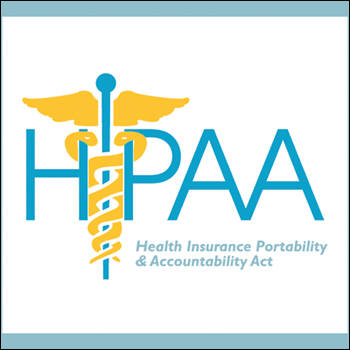Shortage of Case Law Precedent May Account for Persistent Misconceptions
 Implementing the Health Insurance Portability and Accountability Act of 1996 (HIPAA) privacy and security requirements has been a challenging endeavor for health care organizations. Many years later, the task is still complicated by myths and misinterpretations about the law and its related regulations.
Implementing the Health Insurance Portability and Accountability Act of 1996 (HIPAA) privacy and security requirements has been a challenging endeavor for health care organizations. Many years later, the task is still complicated by myths and misinterpretations about the law and its related regulations.
The source of the myths and confusion isn’t always clear, but it seems to come from zealous privacy advocates, providers’ legal advisors who warn of legal consequences and lawsuits, and vendors eager to sell their “HIPAA-compliant” products. Today, the myths may persist because case law and precedent have been hard to come by: There simply hasn’t been a lot of actual legal enforcement of the HIPAA regulations.
Here are three of the most common HIPAA myths.
Myth #1
A health care provider may not discuss a patient’s condition or care with a family member.
Myth dispelled
Not true. In fact, the HIPAA Privacy Rule at 45 CFR 164.510(b) specifically permits a health care provider to share information that’s directly relevant to the involvement of a spouse, family members, friends, or other persons identified by a patient, in the patient’s care or payment for health care
- if the patient agrees or, when given the opportunity, doesn’t object, or
- if the provider can reasonably infer, based on professional judgment, that the patient doesn't object.
This means that, for example, if the patient is incapacitated, a provider may share this information with the person when, in exercising professional judgment, they determine that doing so would be in the best interest of the patient.
Myth #2
A healthcare provider can’t disclose a patient’s data to another healthcare provider without a patient authorization.
Myth dispelled
Not true. A healthcare provider may disclose protected health information for treatment activities of a healthcare provider without an authorization
- The provider is required to verify the identity of the person requesting information, or
- If the identity of the person isn’t known to the healthcare provider, then they must ascertain the authority of such person to have access to the information.
A provider may rely on documentation, statement, or representation that meets the requirement if it’s reasonable.
Myth #3
Your patients must sign the HIPAA Notice of Privacy Practices.
Myth dispelled
A provider must provide the notice and make a good faith effort to obtain a written acknowledgment of the patient’s receipt of the notice. If the acknowledgment isn’t obtained, the provider must document his or her efforts to obtain it.
Provided by our partners at Nurses Service Organization